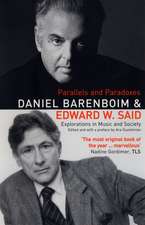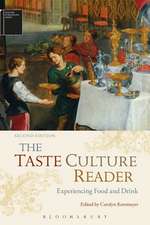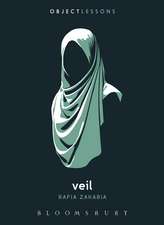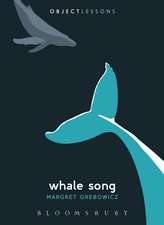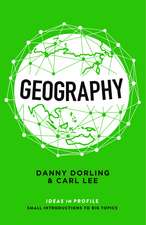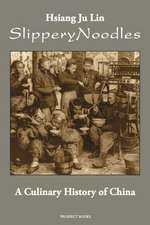Dust: Object Lessons
Autor Dr. Michael Marderen Limba Engleză Paperback – 23 mar 2016
Din seria Object Lessons
- 39%
 Preț: 47.19 lei
Preț: 47.19 lei - 40%
 Preț: 46.62 lei
Preț: 46.62 lei - 39%
 Preț: 46.74 lei
Preț: 46.74 lei - 39%
 Preț: 47.62 lei
Preț: 47.62 lei - 40%
 Preț: 45.85 lei
Preț: 45.85 lei - 39%
 Preț: 47.19 lei
Preț: 47.19 lei - 39%
 Preț: 47.62 lei
Preț: 47.62 lei - 39%
 Preț: 47.19 lei
Preț: 47.19 lei - 39%
 Preț: 47.62 lei
Preț: 47.62 lei - 39%
 Preț: 46.74 lei
Preț: 46.74 lei - 39%
 Preț: 47.19 lei
Preț: 47.19 lei - 39%
 Preț: 47.19 lei
Preț: 47.19 lei - 42%
 Preț: 47.19 lei
Preț: 47.19 lei - 39%
 Preț: 46.74 lei
Preț: 46.74 lei - 39%
 Preț: 46.74 lei
Preț: 46.74 lei - 39%
 Preț: 47.19 lei
Preț: 47.19 lei - 39%
 Preț: 47.62 lei
Preț: 47.62 lei - 39%
 Preț: 47.62 lei
Preț: 47.62 lei - 39%
 Preț: 47.62 lei
Preț: 47.62 lei - 39%
 Preț: 46.74 lei
Preț: 46.74 lei - 39%
 Preț: 46.74 lei
Preț: 46.74 lei - 39%
 Preț: 46.74 lei
Preț: 46.74 lei - 39%
 Preț: 47.62 lei
Preț: 47.62 lei - 39%
 Preț: 47.19 lei
Preț: 47.19 lei - 39%
 Preț: 47.19 lei
Preț: 47.19 lei - 39%
 Preț: 46.74 lei
Preț: 46.74 lei - 39%
 Preț: 47.62 lei
Preț: 47.62 lei - 39%
 Preț: 46.74 lei
Preț: 46.74 lei - 39%
 Preț: 46.74 lei
Preț: 46.74 lei - 40%
 Preț: 46.29 lei
Preț: 46.29 lei - 39%
 Preț: 46.74 lei
Preț: 46.74 lei - 39%
 Preț: 47.19 lei
Preț: 47.19 lei - 39%
 Preț: 47.62 lei
Preț: 47.62 lei - 39%
 Preț: 47.19 lei
Preț: 47.19 lei - 40%
 Preț: 45.85 lei
Preț: 45.85 lei - 39%
 Preț: 47.62 lei
Preț: 47.62 lei - 39%
 Preț: 46.74 lei
Preț: 46.74 lei - 39%
 Preț: 47.37 lei
Preț: 47.37 lei - 39%
 Preț: 47.19 lei
Preț: 47.19 lei - 43%
 Preț: 46.74 lei
Preț: 46.74 lei - 39%
 Preț: 47.62 lei
Preț: 47.62 lei - 39%
 Preț: 46.74 lei
Preț: 46.74 lei - 39%
 Preț: 47.62 lei
Preț: 47.62 lei - 39%
 Preț: 47.25 lei
Preț: 47.25 lei - 39%
 Preț: 46.74 lei
Preț: 46.74 lei - 39%
 Preț: 47.53 lei
Preț: 47.53 lei - 39%
 Preț: 46.74 lei
Preț: 46.74 lei - 39%
 Preț: 47.62 lei
Preț: 47.62 lei - 39%
 Preț: 47.19 lei
Preț: 47.19 lei
Preț: 47.62 lei
Preț vechi: 77.68 lei
-39% Nou
Puncte Express: 71
Preț estimativ în valută:
9.11€ • 9.90$ • 7.66£
9.11€ • 9.90$ • 7.66£
Carte disponibilă
Livrare economică 31 martie-14 aprilie
Livrare express 14-20 martie pentru 47.50 lei
Preluare comenzi: 021 569.72.76
Specificații
ISBN-13: 9781628925586
ISBN-10: 1628925582
Pagini: 144
Ilustrații: 5 b/w illustrations
Dimensiuni: 121 x 165 x 13 mm
Greutate: 0.18 kg
Editura: Bloomsbury Publishing
Colecția Bloomsbury Academic
Seria Object Lessons
Locul publicării:New York, United States
ISBN-10: 1628925582
Pagini: 144
Ilustrații: 5 b/w illustrations
Dimensiuni: 121 x 165 x 13 mm
Greutate: 0.18 kg
Editura: Bloomsbury Publishing
Colecția Bloomsbury Academic
Seria Object Lessons
Locul publicării:New York, United States
Caracteristici
Object Lessons, published in association with The Atlantic, are short, quirky, insightful explorations into the hidden lives of ordinary things
Notă biografică
Michael Marder is Ikerbasque Research Professor in the Department of Philosophy at the University of the Basque Country, Vitoria-Gasteiz, Spain. He is the Associate Editor of Telos: A Quarterly Journal of Critical Thought and the author of Pyropolitics: When the World Is Ablaze (2015) and The Event of The Thing: Derrida's Post-Deconstructive Realism (2009).
Cuprins
1. Dusting2. A Phenomenology of Dust3. Being, Dust, and Time4. Allergic Reactions5. A Community of Remnants6. Just Dust7. DustArtNotesIndex
Recenzii
In this inspiring and thought-provoking book, Michael Marder develops a fascinating phenomenology of dust, showing how, in a world overwhelmed by learned dust and dusty words, it is dust itself that teaches us about how to bring thoughts and words back to the things themselves. In Dust, we find a gem of philosophical prose.
This gem of a book takes us to the dusty surface of our lives with finesse and fine wit. It shows the unsuspected depths of something quite literally superficial, something, which is, nonetheless, an integral part of all humans do and say, accompanying us at every turn until we become dust ourselves.
Yep, it's precisely what it looks like: a book about dust. Well, that and the ways this all-but-invisible matter, this ever-accumulating nothing, pervades and reflects our relationship with the world. Dense topics, to be sure, but Michael Marder's little book of philosophy - just one installment in a multiauthor series called Object Lessons - brings levity and loving care to his topic. It's brisk, brief and slim enough to fit in your pocket; what better way to embrace all the big ideas these tiny specks offer?
Marder's Dust offers a condensed critical theory take on the topic that conveys the significant scope of our human, bodily and philosophical relationship with dust. ... Dust animates and invites reflection on its object of study. Marder's perspective on the seemingly ordinary thing of dust is both thorough and enigmatic, with his observations importantly anchored to real-world examples. The author's writing style shows how dust gathers, through bringing together intellectual and philosophical fragments. He demonstrates the working of dust by drawing from many of its past theorists to create his 'dustography' ... In bridging disciplines, Marder's insights allow us to cross between theories just as the dust crosses borders.
This gem of a book takes us to the dusty surface of our lives with finesse and fine wit. It shows the unsuspected depths of something quite literally superficial, something, which is, nonetheless, an integral part of all humans do and say, accompanying us at every turn until we become dust ourselves.
Yep, it's precisely what it looks like: a book about dust. Well, that and the ways this all-but-invisible matter, this ever-accumulating nothing, pervades and reflects our relationship with the world. Dense topics, to be sure, but Michael Marder's little book of philosophy - just one installment in a multiauthor series called Object Lessons - brings levity and loving care to his topic. It's brisk, brief and slim enough to fit in your pocket; what better way to embrace all the big ideas these tiny specks offer?
Marder's Dust offers a condensed critical theory take on the topic that conveys the significant scope of our human, bodily and philosophical relationship with dust. ... Dust animates and invites reflection on its object of study. Marder's perspective on the seemingly ordinary thing of dust is both thorough and enigmatic, with his observations importantly anchored to real-world examples. The author's writing style shows how dust gathers, through bringing together intellectual and philosophical fragments. He demonstrates the working of dust by drawing from many of its past theorists to create his 'dustography' ... In bridging disciplines, Marder's insights allow us to cross between theories just as the dust crosses borders.



